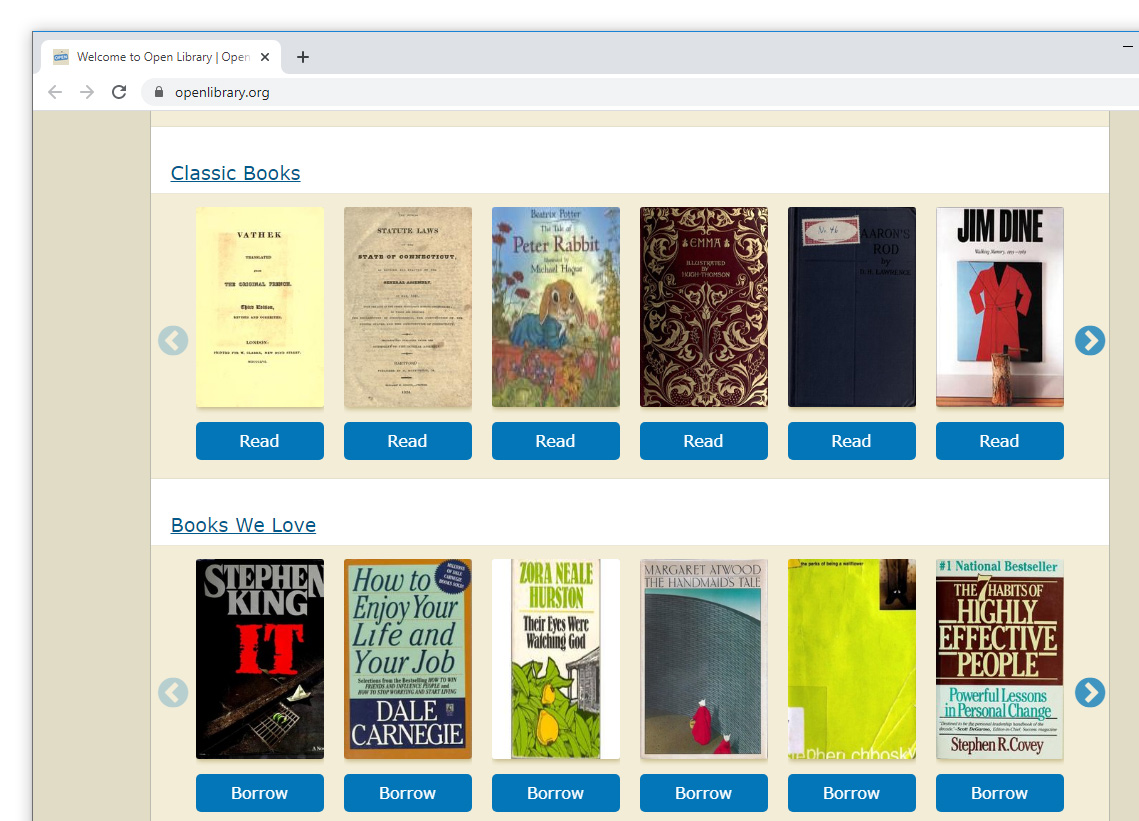Hachette Book Group, HarperCollins Publishers, John Wiley & Sons, and Penguin Random House, have filed a lawsuit against the Internet Archive for copyright violations relating to the Open Library project.
They claim that the Internet Archive is practically committing theft by putting over 1.3 million titles up for free for anyone on the web to download.
E-books hosted on the Internet Archive were previously available to one borrower at a time. The problem started back in March, when the Internet Archive lifted the restriction due to the 'COVID-19' coronavirus pandemic, essentially creating a National Emergency Library to serve “displaced learners.”
"Despite the Open Library moniker, IA's actions grossly exceed legitimate library services, do violence to the Copyright Act, and constitute willful digital piracy on an industrial scale," wrote the four publishers in their complaint.
In the announcement, Maria Pallante, President of the Association of American Publishers:

This moment sets the stage for a major legal fight over one of the internet’s longest-running e-book archives.
Launched in 2006, Internet Archive is the online library best known for maintaining the Internet Wayback Machine. The Internet Archive makes scanned copies of books - both public domain and under copyright - available to the public on a site called the Open Library.
At the site, it allows users to borrow e-books scanned from physical copies, according to a theory called “controlled digital lending” (or CDL) that limits how many times a single scan can be borrowed at once. This project was expanded in March due to the coronavirus pandemic.
Crucially, the project circumvents the typical licensing restrictions used by conventional libraries.
The major difference between public libraries and the Internet Archive is that, the former pays licensing fees to publishers, and for latter acquires donated copies of books, which are then scanned and uploaded.
What this means, the project never actually enters into a licensing agreement with the publishers, and this angers the four publishers.
"[Internet Archive] makes no investment in creating the literary works it distributes and appears to give no thought to the impact of its efforts on the quality and vitality of the authorship that fuels the marketplace of ideas" the publishers said.
Brewster Kahle as the founder of the Internet Archive, defended his organization’s decision, saying that it was practically acting as a digital library while public libraries should not be opened due to lockdown:
Kahle that described the lawsuit as "disappointing", added that any author who wants their work taken down from the Internet Archive can certainly do so by contacting the organization. Some authors, he said, have actually reached out to request their works be featured on the free library.
But because the Internet Archive's Open Library has never actually enters into a licensing agreement with the publishers, Hachette Book Group, HarperCollins Publishers, John Wiley & Sons, and Penguin Random House interpret the Internet Archive's move as a large-scale theft, alleging that the entire project is a wholesale copyright violation scheme.
“Without any license or any payment to authors or publishers, [the Internet Archive] scans print books, uploads these illegally scanned books to its servers, and distributes verbatim digital copies of the books in whole via public-facing websites,” the plaintiffs allege.
“With just a few clicks, any Internet-connected user can download complete digital copies of in-copyright books from [the] defendant.“
In the end, the Internet Archive announced that its library is closing on June 15, or two weeks early, to return to traditional controlled digital lending.